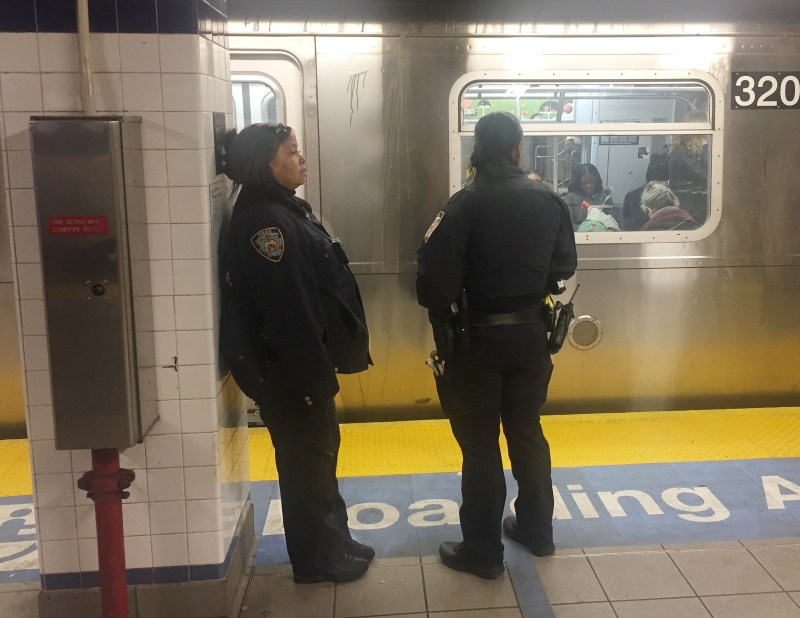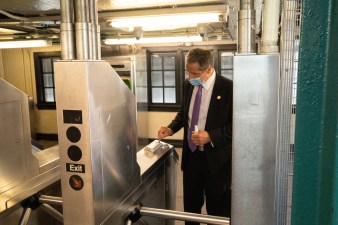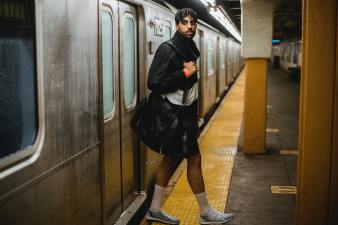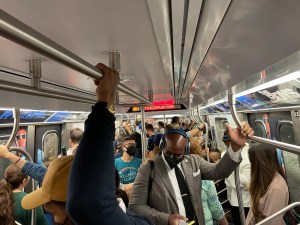Wednesday’s Headlines: A Tale of Two Views on Subway Crime Edition

Tuesday morning started with reports on subway crime from dueling (and respected) institutions: TransitCenter and Nicole Gelinas. Both agree that more ridership generally translates into safer transit systems, but they differ significantly on the role that police should play in the solution.
Gelinas states that the huge drop in MTA ridership during the pandemic, combined with policies that have attempted to move the city away from Broken Windows policing, has made the subway system unacceptably unsafe: 1.5 violent felonies per million rides currently, compared with 0.48 felonies per million rides before the pandemic hit the city. (Overall felonies on the subway went down by 30 percent in 2020.) Her solution: the NYPD should “amp up” its presence in the subway, and stop more people for minor offenses, “such as taking up more than one subway seat and public urination.”
“Such measures, by creating interactions that decrease nonviolent antisocial behavior as well as interactions that result in an arrest for carrying an illegal gun or knife, improve the quality of life and level of public safety on the subways,” Gelinas writes.
Omitted from Gelinas’s pat conclusion: the lack of clear causation between arrests and summonses and lower crime; the research showing that Broken Windows is effectively a new form of segregation; the ongoing state Attorney General investigation into the racial disparities of policing on the subway; and the strangeness of paying police officers to ticket people for sleeping on a train when the MTA doesn’t have enough staff to operate the train itself.
Gelinas also asserts that subway ridership is “indefinitely low,” but it has increased more than 20 percent since she wrote the report. Maybe the MTA has a better way to spend a few hundred million dollars than more cops?
TransitCenter’s “Safety for All” took a national look at transit crime, but specifically focused on how transit agencies could make subways safer without overpolicing (which our computer autocorrect ironically always changes to “overpricing”) and its inevitable, devastating blowback. Crucial to this effort: public transparency (i.e. not using two sets of crime stats for political purposes or repeatedly blocking the release of police disciplinary files), funding programs that actually address poverty, like Fair Fares, and staffing transit systems with more unarmed staff, who create a more welcoming atmosphere and can be trained to address homelessness and mental illness.
Kea Wilson wrote up the TransitCenter report in full for Streetsblog USA.
Meanwhile, in other news:
- Hat tip to Tri-State Transportation Campaign advisory board member W.J. Farr for sleuthing through the MTA budget to find that the agency plans to spend more than $100 MILLION to widen approach ramps to the Verrazzano Narrows Bridge as part of a $1.2 BILLION bridge project, yet not add any bike or pedestrian infrastructure to the span. Climate change anyone? (Via Twitter)
- The Daily News put a human spin on the drunk speeding driver who crashed her car into a truck in Queens.
- Meanwhile, a Bronx woman used her car as a weapon to settle a dispute. (NYDN)
- Steve Cuozzo profiled a train fanatic. (NY Post)
- David Meyer made something out of a whole lot of nothing, taking boilerplate de Blasian support for congestion pricing and churning it into tabloid gold. (NY Post)
- The Times followed a recent scoop by The City about why subway headways are much longer.
- Gov. Cuomo is playing like he’s going to sink the Gateway tunnel project, one which he had previously called essential. (Gothamist)
— with Christopher Robbins (oh, read his New York Magazine story on crime, too!)




